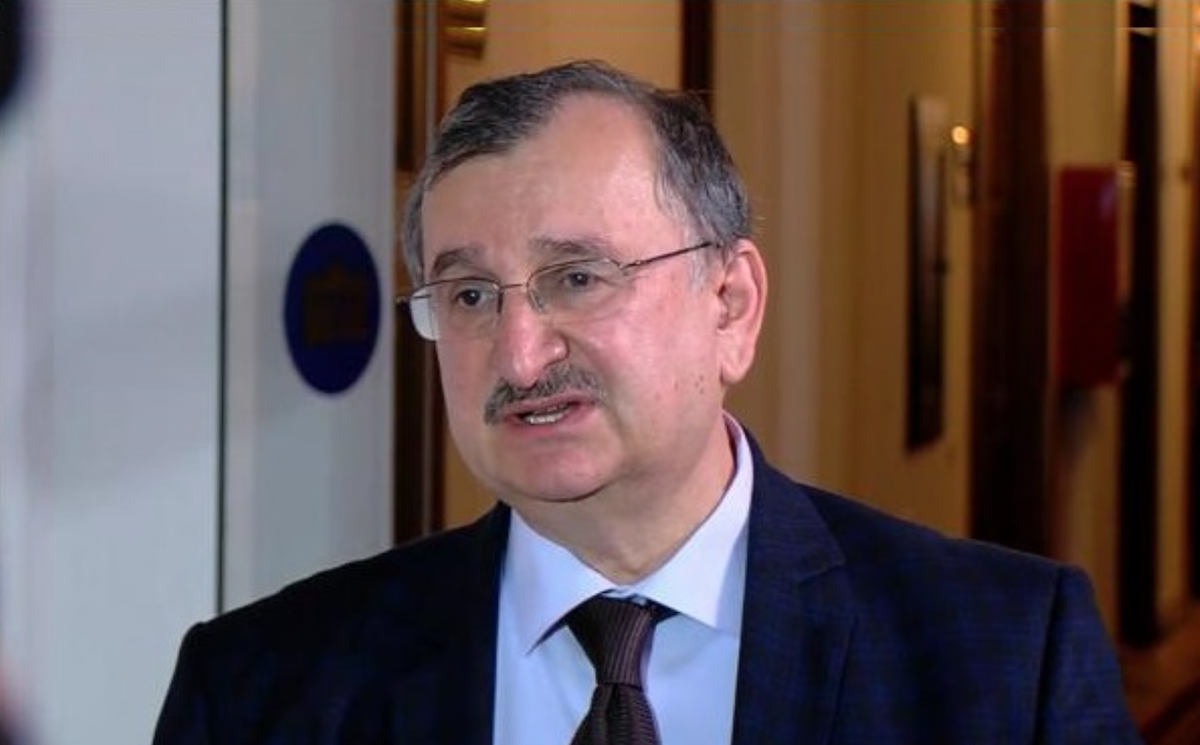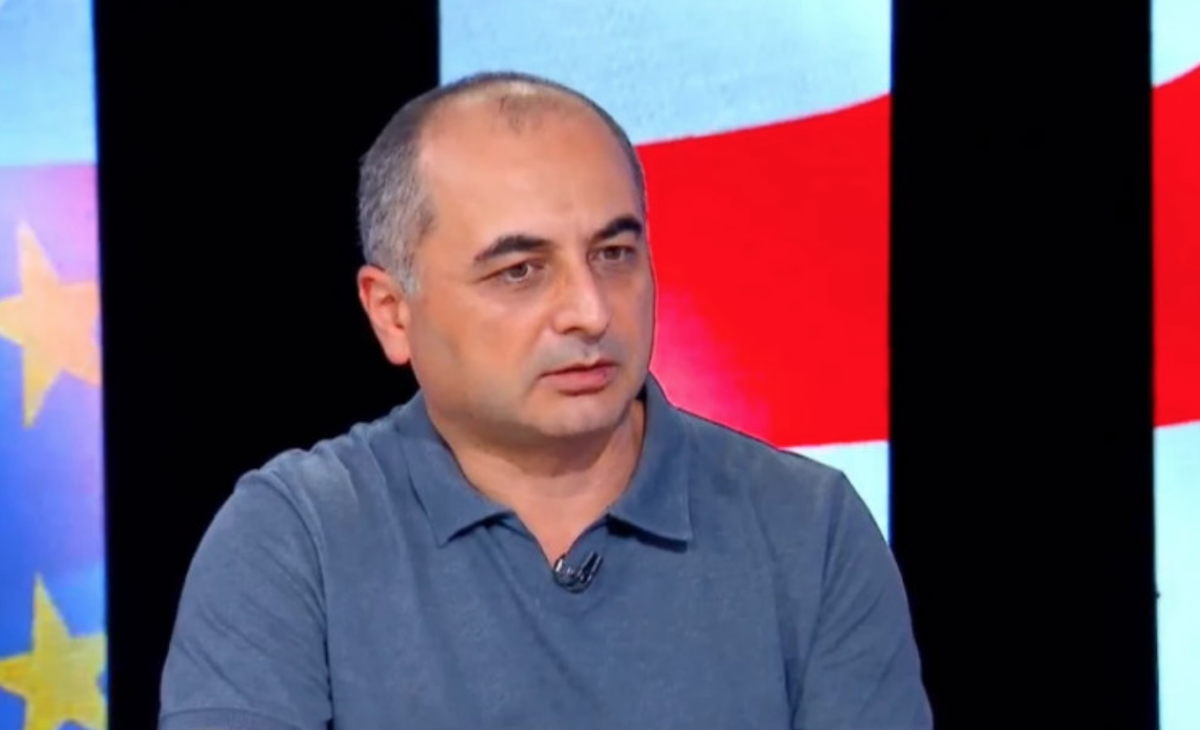Day: September 19, 2024
Kesaria Abramidze, a well-known Georgian transgender woman, 37, was found brutally murdered in her apartment on the night of September 18. The Ministry of Internal Affairs has arrested her boyfriend, Beka Jaiani, the next morning as the suspected killer.
The case is being investigated under Article 109 of the Criminal Code, for premeditated murder with aggravating circumstances of special cruelty based on gender identity. The victim reportedly suffered multiple stab wounds. The suspect faces 16 to 20 years or life imprisonment.
Reports indicate that about two hours before the murder, Kesaria Abramidze posted a photo of herself and her boyfriend on her Facebook story. This has led to speculations that the photo may have triggered the crime, as her boyfriend allegedly did not want it to be made public.
Neighbors and friends of the victim describe a toxic relationship between Kesaria Abramidze and Beka Jaiani with reports of constant physical and psychological abuse. At one point, she had to leave the country due to persistent manipulation and violence, which she discussed in a post from April this year. It appears that relevant law enforcement authorities did not adequately address her concerns.
On the morning of September 19, several media outlets published surveillance footage from Abramidze’s apartment building. The footage shows Beka Jaiani entering and leaving the building within 14 minutes – allegedly the same period in which Abramidze was killed.
The news of Abramidze’s murder was reported about an hour later after neighbors, alarmed by the sounds of a struggle, discovered her covered in blood in her apartment.
“This fact is yet another confirmation that law enforcement and public response to hate and gender-motivated crimes must be especially strict,” Georgia’s Public Defender Levan Ioseliani reacted to the tragic murder shortly after the media reports.
Kesaria Abramidze was a well-known Georgian transgender model. Her tragic murder shook the entire society. “A terrible murder! A denial of humanity! Only this might sober up our society… Hopefully, the killing of this beautiful young woman will at least serve to make us more humane and Christian,” President Salome Zurabishvili posted on her Facebook.
The news came just one day after Georgia’s Parliament passed a controversial anti-LGBT legislation, which stigmatizes the community and restricts their freedom of expression and assembly. But the government’s anti-LGBT rhetoric goes back much further.
“There is a direct correlation between the use of hate speech in politics and hate crimes,” Social Justice Center (SJC), a human rights watchdog, said in its statement reacting to the murder. “It has been almost a year that the Georgian Dream government has been aggressively using homo/bi/transphobic language and cultivating it with mass propaganda means,” the SJC adds.
“It is certain that the policy of hate has serious consequences – harassment of LGBTI people, their marginalization and violence against them. The case of the murder of Kesaria Abramidze cannot be perceived without this general context,” the SJC says.
The watchdog calls on the Georgian MIA and the Prosecutor’s Office to investigate whether the crime was motivated by hate, in particular transphobia, and whether the murder was preceded by previous acts of violence, as well as whether the Georgian MIA and the Prosecutor’s Office responded adequately to them.
Michael Roth, Chairman of the Foreign Affairs Committee of the German Bundestag, who visited Georgia two days ago, also reacted to the case: “Kesaria Abramidze was killed. Just one day after the Georgian parliament passed the anti-LGBTI law. I am deeply shocked and call on the ruling party “Georgian Nightmare” to immediately withdraw the shameful law.”
Also Read:

How Georgia’s National Bank will enforce U.S. sanctions
Opposition MP and former President of the National Bank of Georgia, Roman Gotsiridze, has called for the National Bank to provide a clear statement on whether it is complying with international sanctions.
He emphasized that the institution’s adherence to these sanctions is crucial, as non-compliance could expose Georgian businesses to severe risks.
Specifically, American and European banks may refuse transactions involving individuals listed on the “Magnitsky List,” potentially leading to dire consequences for Georgia’s financial sector.
On September 18, the National Bank of Georgia issued a statement regarding the sanctions imposed by the U.S. Department of the Treasury on four Georgian citizens. The statement specified that, according to a decree by Acting Governor Natia Turnava, “the sanction regime for a Georgian citizen is applied only if the basis for the sanctions against that individual is a final conviction by a Georgian court.”
These changes to the sanctions regulations in Georgia were made on September 19, 2023. This followed the announcement by the U.S. of sanctions against former Attorney General Otar Partskhaladze, who was found to have connections with the Russian Federal Security Service.
The National Bank asserts that the Georgian financial sector operates fully in compliance with sanction requirements and emphasizes that Georgia has “never been and will not become” a place for sanction evasion. However, this policy change raised “additional concern” from the International Monetary Fund.
Commentary
“The U.S. has imposed sanctions on high-ranking Georgian officials—two from the Ministry of Internal Affairs and founders of the pro-Russian agency Alt-info.
These sanctions are unprecedented, surpassing even those imposed on former Prosecutor General Partskhaladze due to their origin with the U.S. Department of the Treasury.
These individuals are now part of the global ‘Magnitsky List,’ a designation symbolizing severe human rights violations. The Georgian government must act decisively and instruct the financial system to prevent any attempts to evade or neglect these sanctions, which could otherwise precipitate a financial crisis.
If pressure on banks continues, Georgian businesses could find themselves unable to transfer funds abroad.
The Prime Minister’s recent statement, supported by the National Bank, highlighted a troubling assertion: that sanctions would apply only following a court conviction. Meanwhile, the National Bank claims that Georgian commercial banks will adhere to international sanction rules.
What should the Georgian banking sector infer from this? The National Bank must clarify whether it is meeting international sanction requirements.
Sanctioned individuals have significant business interests.
For instance, one owns 50 percent of the security company ‘Sarangi’—has his account been frozen? Why does Alt-info continue to broadcast, and why hasn’t the National Communications Commission taken immediate action?“
The U.S. Department of the Treasury has sanctioned Georgian Special Forces Chief Zviad Kharazishvili (known as Khareba), his deputy Mileri Lagazauri, and pro-Russian Alt-info leaders Konstantin Morgoshia and Zurab Makharadze. The State Department has also imposed visa restrictions on over 60 Georgian government and parliament members, including their families, for “undermining democracy.”
Notably, Kharazishvili’s deputy was also added to the “Magnitsky List,” linking both officials to violence against opponents of the “foreign agents” law. The U.S. Department of the Treasury has stated that all assets of these individuals within the U.S. or under U.S. jurisdiction will be blocked.
THE PUTIN’S JEWS https://t.co/uTZFQ288oU
–#NewsAndTimes #NT #TNT #News #Times#World #USA #POTUS #DOJ #FBI #CIA #DIA #ODNI#Trump #TrumpNews#Israel #Mossad #Netanyahu#Ukraine #NewAbwehr #OSINT#Putin #Russia #GRU #Путин, #Россия #SouthCaucasus #Bloggers
The News And Times…— Michael Novakhov (@mikenov) September 19, 2024


